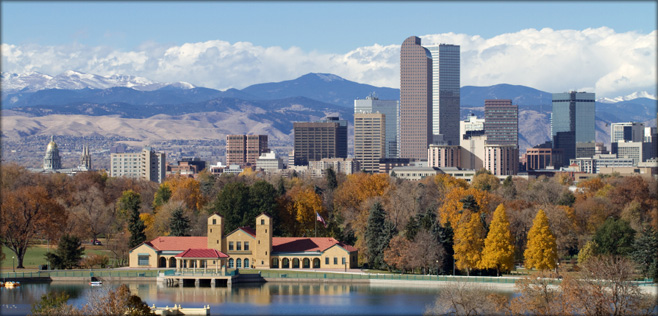Winter Driving Collision Resource in Colorado
Table of Contents
ToggleOver the past two decades, Colorado has averaged over 100,000 car collisions a year; 500 of those collisions ending as fatal crashes. When weather conditions are reported as a cause of an accident; rain, snow, sleet, and hail are among the most commonly cited factors.
The winter months in Colorado can be exceedingly difficult to navigate. The different slopes of mountains, icy roads, and obscured visibility can be a recipe for disaster when driving, especially if drivers are not prepared for the icy conditions.
Knowing what to expect on the road can make all the difference. Weather conditions in Colorado can be extreme, especially during the winter. This article provides an extensive list of resources for Colorado drivers who will be on the road during winter and need more information about preparing for winter driving.
Safe Winter Driving Tips in Denver, Colorado
Experienced winter drivers know that winter roads can be unsafe, slippery, and outright dangerous. Understanding how and when to use caution helps drivers get from point A to point B without a hitch. Below are tips to consider before getting behind the wheel.
AARP – Visit this AARP webpage about driving on wintry roads to learn some basic, precautionary tips about preparing yourself for the drive. The AARP primarily focuses on providing people who are retiring the help to live their lives to utmost fulfillment. The AARP gives excellent general tips to consider when driving in winter.
NCS – The National Safety Council has only the safety of people on their mind. Its mission is to eliminate preventable injuries and accidents in all communities through research, education, leadership, and advocacy. The National Safety Council prepares readers for the harrowing winter conditions by providing helpful advice.
AAA Exchange – Learn more about winter driving with the recommendations of AAA Exchange. Severe weather conditions can be dangerous for drivers, and AAA is designed to foster communication between themselves and the 56 million people they serve a day in and day out. With a long history of public service, AAA provides an experienced look into important automotive safety issues.
Safe Motorist – The Safe Motorist provides online material for the driving needs of all. This webpage offers extensive assistance when needing to ‘winterize’ your car while giving tips for driving on slick roads. The Safe Motorist also offers traffic safety courses and a plethora of traffic articles for drivers in every state.
NHTSA – The NHTSA provides information on car servicing, tires, windshields, cooling systems, and other automotive features to consider when driving in colder conditions. The NHTSA is insistent on keeping Americans safe on the road through the enforcement of vehicle performance standards and more.
Consumer Reports – This Consumer Report article offers extensive advice for tire preparation in winter conditions. Some tires work all year round, but of the most slippery and potentially dangerous of conditions, it could be advantageous to buy winter tires. Consumer Reports works with consumers to create a safer, healthier world with rigorous research, testing, and education.
Denver, Colorado Winter Driving Resources
Driving through wintery conditions is not the same for everyone. A driver must consider a lot of different variables, depending on the state. Colorado’s landscape differs from that of flatter states. Luckily, there are plenty of resources from experienced Colorado drivers.
Drive Smart Colorado – Colorado’s weather conditions can change very rapidly. Drive Smart Colorado seeks to reduce the number of traffic crashes through education and community collaboration. Visit this page to prepare yourself for Colorado’s tricky and hazardous roads during winter.
American Red Cross – Red Cross has been helping Americans across the country for over a hundred years now. Volunteers and staff work every day to give Americans in crisis a vital and fundamental service. This page details a comprehensive list of advice for driving in Colorado created by AAA, the American Red Cross, and the Colorado Department of Transportation.
Colorado Winter Driving Handbook – CDOT is the principal department of the state government that administers transportation responsibilities. Learn more about driving in winter with this helpful handbook to ensure you keep your car under control at all times.
Uncover Colorado – Driving through the Colorado Rocky Mountains only heightens the dramatic winter road condition. To keep you and your loved ones safe, Uncover Colorado gives 11 informative tips for those looking to drive through the mountains.
Colorado Ski – Visit this webpage by Colorado Ski to read about traveling on I-70. Colorado Ski offers important information on ski areas for those visitors and Colorado natives alike. Prepare for winter driving and more on this resourceful website.
Colorado Chain Law
Winter driving conditions can appear in Colorado in September and last until May. The state demands its drivers to follow precautionary procedures to ensure optimal road safety. 500 fatal crashes occur every year in Colorado, and in hopes of diminishing that number, Colorado enacted the Chain Law.
The Chain Law demands that drivers be prepared for the winter driving conditions with adequate tires and equipment. This does not only apply to large commercial vehicles, but to all drivers, though larger vehicles must follow more restrictive measures.
Colorado Official Web Portal – To prepare Colorado drivers for winter, the official state website offers an easy way to read the rules and regulations of the Chain Law. Learn more about vehicle designations and the regulations each driver must follow from September to May.
Steps to Take After a Denver Car Collision
After an accident, there are essential steps to take. The following precautions will help ensure safety and the protection of rights:
- Be Safe – Do not get out of your car unless you are in a safe location. Do not move your vehicle unless it is necessary to protect your safety and the safety of those around you, and you are physically able to do so.
- Call 911 – Check to see if anyone was injured. If anyone has suffered any injuries, call 911 and the police. Exchange driver and witness contact information, and, if possible, assist the police in the investigation.
- Seek Medical Attention – If you are injured, it is likely an ambulance will be called to transport you to the emergency department. If you were not taken to the hospital by ambulance and you continue to experience pain or develop new or worsening of your symptoms, you should immediately seek medical attention. Diagnosing and treating all injuries caused by the crash is essential to your physical recovery, as well as your ability to obtain full and fair compensation from the negligent party.
- Contact an Experienced Denver Personal Injury Lawyer – The driver at-fault will likely have an insurance company protecting his or her interests. Be sure to contact an experienced lawyer as soon as possible after the crash. It is important not to give a statement to the insurance company, sign any documents or accept a settlement offer until you have retained a skilled personal injury lawyer to protect your interests.
Winter Driving Statistics and Resources
Colorado Official State Portal – This webpage offers readers the opportunity to read driving statistics reported by the Colorado State Patrol. Visitors can see how many car crashes are caused by DUI’s, how many collisions end in fatalities, and the yearly rates concerning citations and more.
CDOT Safety & Crash Data – Visit the Colorado Department of Transportation’s official website to learn more about the state’s driving statistics. This website offers more information regarding proper and safe driving practices to promote an efficient and reliable highway system.
Bridgestone Driving School – The Bridgestone Winter Driving School offers winter driving courses for drivers looking to educate themselves on winter driving. Their professional instructors teach drivers to feel more comfortable and safe on the road during extreme conditions.
We also offer the following practice areas at Donaldson Law LLC:
- Rear-End Impact Accidents
- Reckless Driver Accidents
- Parking Lot Accidents
- Underinsured / Uninsured Motorist Accidents
- Low Speed Impact Crash
- High Speed Impact Accident
- Passenger Injury Accidents
- Side Impact Collisions
- Distracted Driver Accidents
- Hit and Run Accidents Injury
- Denver, Colorado Uber Accidents
- Teenage Driving Accident
- Underage DUI
Call Our Denver, Colorado Winter Driving Accidents Lawyers at Donaldson Law, LLC For Your Free Consultation Today
If you or a loved one have been involved in a car collision, contact an experienced personal injury lawyer who will represent your interests. Donaldson Law, LLC has represented hundreds of clients involved with personal injury cases in the Denver area.
With 30 years of experience, Denver Car Accident Lawyer Jennifer L. Donaldson of Donaldson Law, LLC has built a reputation of commitment and ingenuity. Donaldson Law, LLC seeks to give clients every possible chance to succeed and understands how disorienting and difficult a car crash can be.
The experience of a car collision can impact a person’s entire life. Winter driving conditions in Colorado can be extremely terrifying, and for that, Donaldson Law, LLC created this page for visitors. Donaldson Law, LLC wants every Colorado driver to prepare themselves for icy roads and snowy conditions, and the best way to avoid injury is through prior education.
Call Donaldson Law, LLC at (303) 458-5000 to learn more about winter driving or to take the first steps of a personal injury case.


















